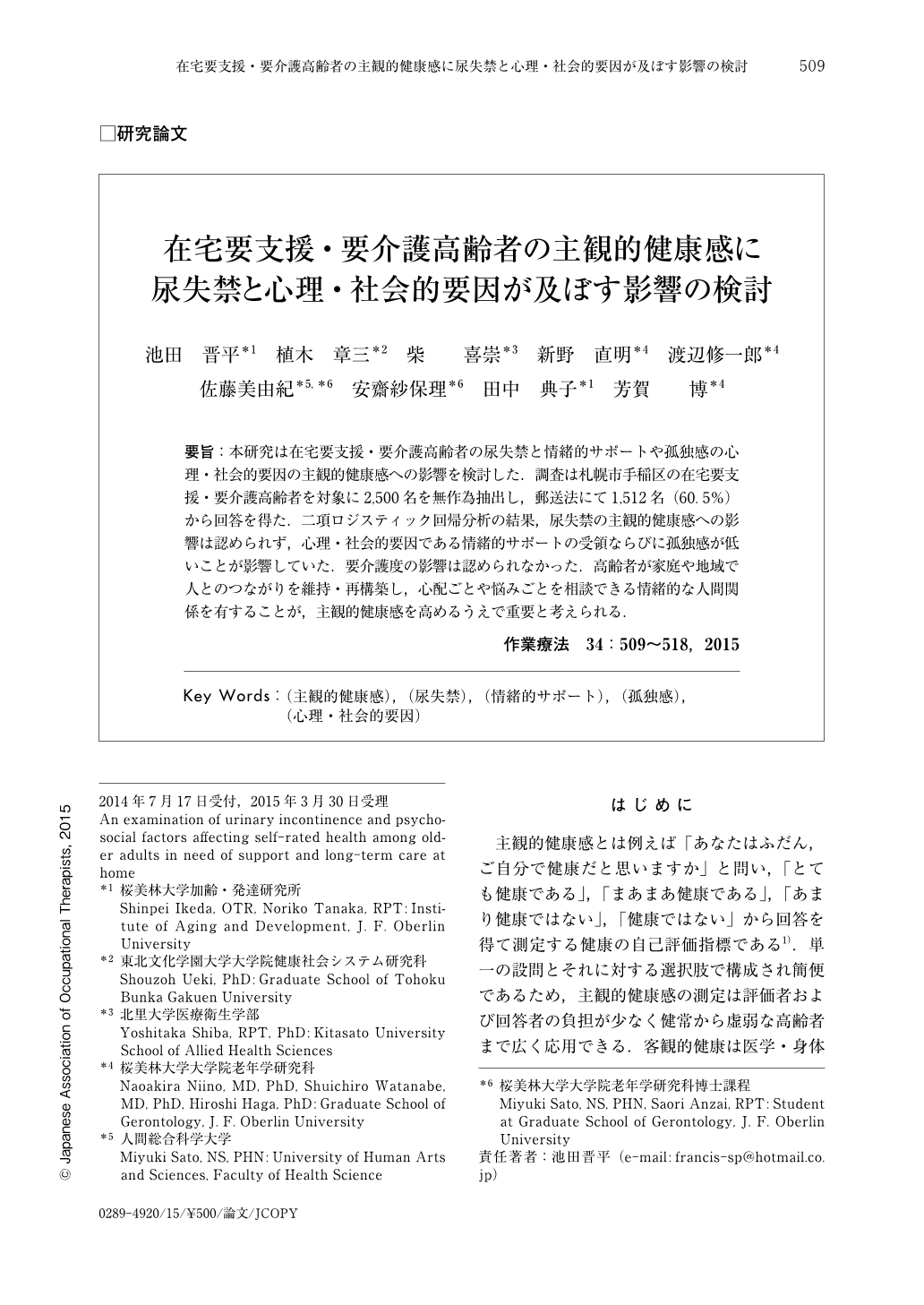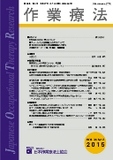Japanese
English
- 販売していません
- Abstract 文献概要
- 1ページ目 Look Inside
- 参考文献 Reference
- サイト内被引用 Cited by
要旨:本研究は在宅要支援・要介護高齢者の尿失禁と情緒的サポートや孤独感の心理・社会的要因の主観的健康感への影響を検討した.調査は札幌市手稲区の在宅要支援・要介護高齢者を対象に2,500名を無作為抽出し,郵送法にて1,512名(60.5%)から回答を得た.二項ロジスティック回帰分析の結果,尿失禁の主観的健康感への影響は認められず,心理・社会的要因である情緒的サポートの受領ならびに孤独感が低いことが影響していた.要介護度の影響は認められなかった.高齢者が家庭や地域で人とのつながりを維持・再構築し,心配ごとや悩みごとを相談できる情緒的な人間関係を有することが,主観的健康感を高めるうえで重要と考えられる.
The purpose of this study was to examine urinary incontinence and psychosocial factors as emotional support and loneliness that affect Self-Rated Health (SRH) among frail older adults. The participants were 1,512 older adults who needed support and long-term care at home in Sapporo. About 30 percent of participants responded well to the SRH. The multiple logistic regression analysis revealed that urinary incontinence is not significantly associated with SRH. On the other hand, having emotional support and little loneliness are significantly associated with SRH. In order to promote SRH among frail older adults, it is important that they have an emotional connection with people around them, and feel little loneliness among family dynamics and the community. We recommend that occupational therapy focus more on the close interpersonal relationship between frail older adults and people such as caregivers or health-care providers.

Copyright © 2015, Japanese Association of Occupational Therapists. All rights reserved.


